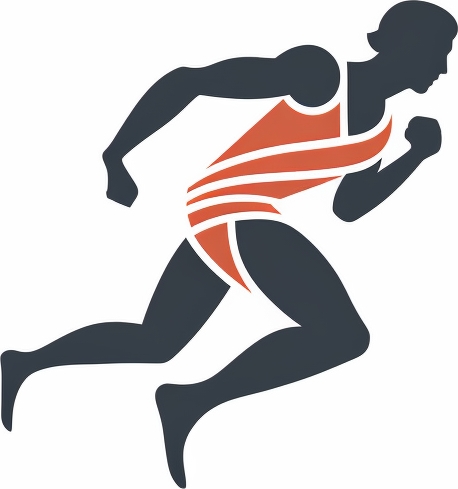As a runner, you need to fuel your body with the right type and amount of macronutrients to perform at your best. Carbohydrates play a crucial role in your diet as they are the primary source of energy for your body during exercise, including running.
When you eat carbs, they are converted into glucose, which passes into the bloodstream and is transported to your muscles to be used as energy. The more intense your workout, the more your body relies on glucose for fuel.
As a runner, you need to consume enough carbs to fuel your workouts and keep your energy levels up. The exact amount will depend on factors such as your body weight, training volume, and activity level.
To ensure you’re meeting your carb needs, aim to include complex carbs such as whole grains, fruits, and vegetables in each of your meals. These types of carbs are processed more slowly by your body, providing a steady source of energy throughout the day.
Different types of carbs and their effects on the body
While all carbs provide energy, not all carbs are created equal. Understanding the different types of carbs and how they affect your body is essential for optimizing your running performance.
There are two types of carbs: simple and complex. Simple carbs include sugars such as fructose and sucrose, while complex carbs include starches and fibers found in whole grains, fruits, and vegetables.
Simple carbs are digested quickly and provide a quick energy boost. However, they are also associated with crashes in energy levels. Complex carbs take longer to digest, providing a steady stream of energy.
As a runner, it’s important to focus on including complex carbs in your diet, as they provide sustained energy and are also nutrient-dense.
The importance of carb loading before a race
Carb loading involves increasing your carb intake in the days leading up to a race to maximize glycogen stores in your muscles. This can lead to improved endurance and delayed fatigue during the race.
Carb loading is most effective when done over a period of several days, gradually increasing your carb intake. It’s important not to overdo it, as eating too much can cause gastrointestinal distress.
It’s also important to note that carb loading does not replace the need for a balanced diet in your regular training. Instead, it’s an extra tool to ensure you’re fully fueled and ready to perform on race day.
Balancing carb intake with protein and fat for optimal performance
While carbs are crucial for high-intensity exercise such as running, a balanced diet with adequate protein and healthy fats is also essential for optimal performance.
Protein is necessary for muscle repair and recovery after workouts, as well as for supporting immune function and hormone production. Aim to include a source of protein in each meal, such as lean meats, poultry, fish, eggs, beans, or nuts.
Healthy fats, such as those found in nuts, seeds, avocados, and fatty fish, provide energy and support brain function. They also aid in the absorption of fat-soluble vitamins.
To achieve optimal performance, aim to balance your carb intake with sufficient protein and healthy fats. The exact ratios will depend on your individual needs and preferences, but a general guideline is to aim for 45-65% of your daily calories from carbs, 10-35% from protein, and 20-35% from fat.
The impact of low-carb diets on running performance
In recent years, low-carb diets have gained popularity for weight loss and overall health. However, for runners, a low-carb diet may not be the best approach.
Low-carb diets can limit your body’s ability to store glycogen, which can lead to decreased endurance and performance. Without adequate carbs, your body may also turn to breaking down protein for fuel, which can result in muscle loss.
While some runners may find success with a low-carb diet, it’s important to carefully consider the potential impact on your running performance. If you’re considering a low-carb diet, be sure to talk to a registered dietitian or your healthcare provider to determine if it’s right for you.
Taking into account individual needs and preferences
While there are general guidelines for carb intake for runners, it’s important to take into account your individual needs and preferences when designing your diet.
Factors such as your body weight, training volume, age, sex, and overall health can all impact your carb needs. Some runners may require more carbs to fuel their workouts, while others may function better on a lower carb intake.
It’s also essential to consider your personal preferences and dietary restrictions. If you’re a vegetarian or vegan, you may need to be more deliberate in your food choices to ensure you’re meeting your carb and protein needs. If you have a food allergy or intolerance, you’ll need to find alternative sources of carbs.
Working with a registered dietitian can be helpful in determining the right balance of carbs, protein, and healthy fats for your individual needs. They can also provide practical tips for incorporating the right foods into your meals and snacks.
Practical tips for incorporating carbs into your running diet
Incorporating carb-rich foods into your running diet can be easy and delicious. Here are some practical tips for getting the right amount of carbs in your diet:
- Add whole-grain toast or oatmeal to your breakfast
- Snack on fresh fruit or trail mix before or after your workout
- Add sweet potatoes, quinoa, or brown rice to your lunch or dinner
- Use whole-grain pasta or brown rice in your pasta dishes
- Top your salads with beans or legumes for added protein and carbs
- Have a banana or a sports drink during long runs to maintain energy levels
It’s also important to pay attention to timing. Consuming a carb-rich snack or meal 1-2 hours before a run can help provide the energy you need for a successful workout. Similarly, refueling with carbs and protein within 30 minutes of finishing your workout can help aid in muscle recovery and replenish spent glycogen stores.
By incorporating the right amount and type of carbs into your running diet, you’ll be able to fuel your workouts, optimize your performance, and enjoy the benefits of an active lifestyle.

